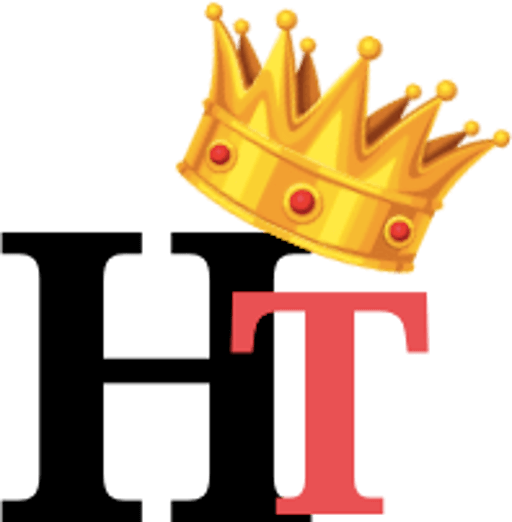Are you passionate about helping others overcome their struggles with addiction? Discover the definitive path to becoming a successful addiction recovery coach in this comprehensive guide.
Becoming a recovery coach is a fulfilling career choice for those dedicated to supporting individuals on their journey to recovery from addiction. This guide will walk you through every step required to establish yourself as a recovery coach, from understanding the role to gaining the necessary qualifications required training, and finding clients.
Key Takeaways on How to Become a Recovery Coach
- Assess Personal Suitability: Evaluate your empathy, communication skills, and resilience to ensure you’re suited for the emotional demands of recovery coaching.
- Educational Background: While not mandatory, a background in psychology, counseling, or social work can be beneficial. In New York State, applicants must possess a high school diploma or GED equivalent to qualify for certain positions. Consider taking courses or obtaining certifications relevant to recovery coaching.
- Certification: Obtain certifications such as the Certified Peer Recovery Specialist (CPRS) or credentials from organizations like the International Coach Federation (ICF) to enhance credibility.
- Practical Experience: Gain hands-on experience through volunteering, internships, or shadowing experienced coaches to build practical skills and knowledge.
- Business Planning: Develop a solid business plan if you intend to work independently. Identify your target market, define your services, and create a marketing strategy to attract clients.
- Online Presence: Establish a professional online presence through a website, social media, and content marketing to reach potential clients and build your brand.
- Networking: Connect with healthcare providers, attend industry conferences, and join professional associations to build a network and find collaborative opportunities.
- Continuous Learning: Stay updated with the latest in addiction recovery and coaching techniques by attending workshops, courses, and engaging in continuous professional development.
- Emotional Well-being: Prioritize your own mental health and well-being by seeking support and maintaining a healthy work-life balance to avoid burnout.
- Understanding Misconceptions: Be aware of common misconceptions about recovery coaching and educate clients on the non-clinical support you provide to manage expectations effectively.

Understanding the Role of a Recovery Coach
A recovery coach provides non-clinical assistance to people are seeking recovery to overcome addiction. Unlike therapists or counselors, recovery coaches offer practical guidance and emotional support to help clients navigate their recovery journey.
Key Responsibilities
- Motivational Support: Encourage and motivate clients to stay on track with their recovery goals.
- Goal Setting: Assist clients in setting and achieving personal and recovery-related goals.
- Resource Connection: Connect clients with appropriate resources such as support groups, housing, employment, and medical care.
- Accountability: Help clients remain accountable for their recovery plans.
Step 1: Assess Your Suitability for the Role
Before embarking on the journey to become a certified addiction recovery coach yourself, it’s crucial to evaluate whether this career aligns with your skills and interests.
Personal Qualities Required
- Empathy and Compassion: Ability to understand and share the feelings of others.
- Strong Communication Skills: Effective listening and clear communication.
- Patience and Resilience: Ability to remain calm and composed in challenging situations.
- Problem-Solving Skills: Ability to offer practical solutions to clients’ issues.
Step 2: Gain Relevant Education and Training
While formal education is not always mandatory, having a background in psychology, social work, or counseling can be beneficial.
Recommended Courses and Certifications
- Certified Peer Recovery Specialist (CPRS): This certification is widely recognized and provides foundational knowledge for recovery coaching.
- International Coach Federation (ICF) Certification: Although broader, this certification enhances coaching skills.
- Specialized Recovery Coach Training Programs: Numerous organizations offer training specific to recovery coaching.
- CCAR Recovery Coach Academy: This 30-hour training is crucial for CRPA certification and meets the educational requirements for peer role employment in Medicaid-sponsored jobs across New York State.
Step 3: Obtain Certification
Certification enhances credibility and demonstrates commitment to the foundational principles of the profession.
Popular Certification Programs
- Recovery Coach Academy: Offers comprehensive training programs.
- The Addictions Academy: Provides a variety of certifications, including recovery coach certification.
- Certified Recovery Peer Advocate (CRPA): This certification is crucial for those looking to support sustainable recovery. It opens up numerous career opportunities and is highly valued in New York for its rigorous training and application requirements.
Step 4: Gain Practical Experience
Hands-on experience is invaluable in this field. Consider volunteering or working with organizations that support individuals in the recovery process.
Opportunities for Experience
- Volunteering at Rehabilitation Centers: Gain exposure and practical experience.
- Internships: Many programs offer internships as part of their certification process.
- Shadowing Experienced Coaches: Learn from established recovery coaches.

Step 5: Develop a Business Plan
If you plan to work independently, developing a business plan is crucial.
Key Components of a Business Plan
- Target Market Identification: Determine your niche within the recovery community.
- Service Offerings: Define the services you will provide (e.g., one-on-one coaching, group sessions, workshops).
- Marketing Strategy: Plan how you will attract and retain clients.
- Financial Plan: Outline your pricing strategy and financial projections.
Step 6: Establish an Online Presence
In today’s digital age, having an online presence is vital for reaching potential clients.
Building Your Brand
- Create a Professional Website: Showcase your services, credentials, and client testimonials.
- Social Media: Utilize platforms like Facebook, LinkedIn, and Instagram to engage with your audience.
- Content Marketing: Write blogs, create videos, and share valuable content related to recovery.
Step 7: Network and Market Your Services
Building a network and marketing your services effectively is essential for growing your client base.
Networking Strategies
- Attend Industry Conferences: Participate in events related to addiction recovery and coaching.
- Join Professional Associations: Connect with other professionals in the field.
- Collaborate with Healthcare Providers: Establish relationships with therapists, doctors, and rehabilitation centers.
Frequently Asked Questions (FAQs)
Q1: Do I need a degree to become a recovery coach?
A1: While a degree is not always required, a high school diploma or GED equivalent is necessary for certain positions. Additionally, having a background in psychology, counseling, or social work can be advantageous.
Q2: How long does it take to become a certified recovery coach?
A2: The timeline varies depending on the certification and training program used. It can take anywhere from a few months to a year.
Q3: Can I become a recovery coach if I have a history of addiction?
A3: Yes, many recovery coaches have personal experience with addiction, which can provide valuable insight and empathy to addiction treatment themselves.
Q4: What is the average salary of a recovery coach?
A4: Salaries can vary widely. According to industry data, recovery coaches can earn between $30,000 and $60,000 per year, with potential for higher earnings based on experience and location.
Q5: How do I find clients as a new recovery coach?
A5: Building a client base involves networking, establishing an online presence, and leveraging referrals from satisfied clients and professional connections.
Exploring the Counter Aspects of Becoming a Recovery Coach
While becoming a recovery coach can be a rewarding career, it’s essential to understand the less glamorous sides of the job. This exploration of addiction professionals delves into the counter aspects, disadvantages, antagonistic viewpoints, misunderstandings, and sparsely discussed factors associated with becoming a recovery coach.
Emotional and Psychological Challenges
The Burden of Responsibility
Recovery coaches often shoulder a heavy emotional burden. They are responsible for guiding individuals through some of the most challenging periods of their lives. This responsibility can lead to significant stress and anxiety, especially when clients relapse or fail to meet their recovery goals. The emotional toll of witnessing repeated setbacks can be profound and exhausting.
Emotional Detachment
To cope with the emotional strain, some recovery coaches may develop emotional detachment as a defense mechanism. This detachment can hinder their ability to connect genuinely with clients, potentially affecting the quality of peer support services they provide. Over time, this can lead to burnout and diminished job satisfaction.
Professional Challenges
Lack of Clear Career Path
Unlike more traditional careers, the path to becoming a successful recovery coach is not well-defined. There are no universally accepted standards or qualifications, making it difficult for aspiring coaches to know exactly what steps to take. This ambiguity can lead to uncertainty and frustration for those entering the field.
Inconsistent Income
Many recovery coaches work on a freelance or contractual basis, leading to fluctuating income. The demand for coaching services can vary significantly, influenced by factors such as economic conditions, societal attitudes toward addiction, and competition within the field. This financial instability can be a significant disadvantage for those seeking a stable career.
Antagonistic Viewpoints and Misunderstandings
Skepticism from Medical Professionals
Recovery coaches often face skepticism from medical professionals who question the efficacy and legitimacy of their role in addiction therapy. Some doctors and therapists may view recovery coaching as a less effective or even unnecessary alternative to clinical treatment, potentially creating friction and limiting collaborative opportunities.
Misunderstanding the Role
There is a widespread misunderstanding about what recovery coaches do. Many people mistakenly believe that recovery coaches provide clinical therapy or medical treatment. This misunderstanding can lead to unrealistic expectations from clients and their families, potentially resulting in dissatisfaction and strained relationships early recovery themselves.

Sparsely Discussed Factors
Vicarious Trauma
Vicarious trauma is an under-discussed issue among recovery coaches. Constantly dealing with clients’ traumatic experiences can lead to secondary trauma, where the coach begins to experience symptoms similar to those of PTSD. This can affect their mental health and overall well-being, sometimes severely.
Ethical Dilemmas
Recovery coaches frequently face ethical dilemmas, such as managing dual relationships and maintaining professional boundaries. Unlike licensed professionals bound by strict ethical codes, recovery coaches often operate in a grey area of ethics, making it challenging to navigate complex ethical situations.
Isolation in Practice
Working as an independent recovery coach can be isolating. Without a structured peer support system or colleagues to share experiences and advice, coaches can feel alone in their practice. This isolation can exacerbate the emotional and psychological challenges associated with the job.
Let’s wrap this up…
Understanding the counter aspects and potential pitfalls of becoming a recovery coach is crucial for anyone considering this career path. Emotional and psychological burdens, professional uncertainties, misunderstandings about the role, and ethical challenges are just a few of the complexities that recovery coaches must navigate. By acknowledging these issues, aspiring recovery coaches can better prepare themselves for the realities of this demanding yet fulfilling profession.




